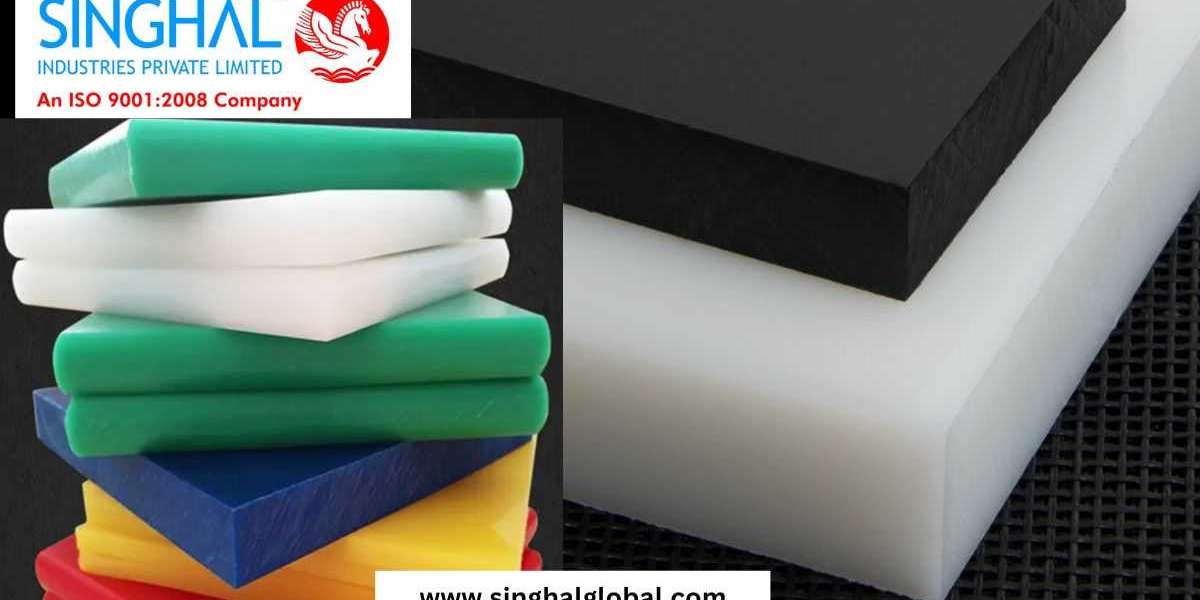High-Density Polyethylene (HDPE) is one of the most widely used plastics in the world, prized for its strength, durability, and versatility. HDPE sheets, also known as polyethylene high-density sheets or high-density plastic sheets, are used in a variety of industries, from manufacturing to construction, and even in food packaging. Their unique combination of properties makes them an excellent choice for both industrial and commercial applications. In this article, we’ll explore the benefits, applications, and frequently asked questions about HDPE sheets.
What is HDPE?
HDPE stands for High-Density Polyethylene, a thermoplastic polymer made from petroleum. It is known for its high strength-to-density ratio, which is why it is often referred to as a high-density plastic sheet. The polymer chains in HDPE are tightly packed, which results in a strong, durable material that is resistant to wear and tear. These properties make it ideal for a wide variety of applications.
Polyethylene high-density sheets are made by heating the polymer to a molten state and then forming it into thin sheets through extrusion or other molding processes. This allows the material to be manufactured in various thicknesses, sizes, and colors, offering flexibility to meet the specific needs of different industries.
Benefits of HDPE Sheets
Durability and Strength
HDPE sheets are incredibly durable, making them an excellent choice for applications that require strength and resistance to impact. They are tough, resistant to cracking, and maintain their integrity even under harsh conditions. This makes them ideal for outdoor use, in environments exposed to UV radiation, extreme weather, and physical stress.Chemical Resistance
One of the standout features of High-density polyethylene sheets is their chemical resistance. They are highly resistant to acids, bases, salts, alcohols, and other chemicals, making them suitable for applications in the chemical, pharmaceutical, and food processing industries. The material doesn’t degrade easily, even when exposed to harsh chemicals, ensuring long-lasting performance in challenging environments.Lightweight
Despite its strength, a high-density plastic sheet is relatively lightweight compared to other materials, such as metal or wood. This makes it easier to handle, transport, and install, helping to reduce operational costs.Environmental Resistance
The Polyethylene high-density sheets are resistant to moisture and can withstand exposure to water, making them suitable for applications in wet or humid environments. Additionally, they are resistant to corrosion, unlike metals that may rust over time. This makes HDPE sheets an excellent choice for outdoor installations, such as in marine environments.Ease of Fabrication
HDPE sheets are easy to machine and fabricate. They can be cut, drilled, welded, and thermoformed with relative ease, making them a popular choice in industries where custom sizes and shapes are required. This flexibility is beneficial for producing both standard and highly specialized components.Recyclability
HDPE is fully recyclable, making it an environmentally friendly option for manufacturers and consumers. Recycling HDPE sheets helps to reduce waste and conserve natural resources. This feature has contributed to its growing popularity in eco-conscious industries.
Applications of HDPE Sheets
HDPE sheets have a wide range of applications across different industries. Below are some of the most common uses:
Packaging
In the packaging industry, HDPE is widely used for creating containers, bottles, and other packaging materials. Its durability, lightweight nature, and resistance to chemicals make it perfect for packaging food, beverages, and chemicals.Construction and Building
In India, High-density plastic sheets are used in construction for applications such as protective barriers, wall cladding, roofing, and insulation. Their ability to withstand the elements makes them ideal for both indoor and outdoor building applications.Agriculture
In agriculture, HDPE sheets are used in greenhouse construction, liners for ponds, and as barriers to prevent soil erosion. The material’s resistance to UV light ensures that it maintains its integrity even under prolonged exposure to sunlight.Industrial Applications
HDPE sheets are used in industrial settings for creating parts like tanks, bins, conveyors, and storage containers. Their resistance to wear, abrasion, and chemicals makes them suitable for applications in manufacturing, mining, and other heavy industries.Food Processing
Because of its high resistance to chemicals and moisture, HDPE is often used in food processing and handling applications. It is commonly used for cutting boards, work surfaces, and containers where hygiene and durability are essential.
FAQs About HDPE Sheets
1. What is the difference between HDPE and LDPE?
The primary difference between HDPE (High-Density Polyethylene) and LDPE (Low-Density Polyethylene) lies in their molecular structure. HDPE has a more tightly packed molecular structure, making it stronger and more rigid, while LDPE has a more flexible, low-density structure. HDPE is better suited for heavy-duty applications, while LDPE is often used for packaging applications like plastic bags.
2. Can HDPE sheets be welded?
Yes, HDPE sheets can be welded using specialized techniques like extrusion welding or hot gas welding. This allows for the creation of custom-sized parts, making it an ideal material for a range of fabrication needs.
3. Are HDPE sheets safe for food contact?
Yes, high-density polyethylene sheets are FDA-approved for food contact applications. They are widely used in the food industry for creating food-safe containers, cutting boards, and work surfaces due to their resistance to chemicals and bacteria.







